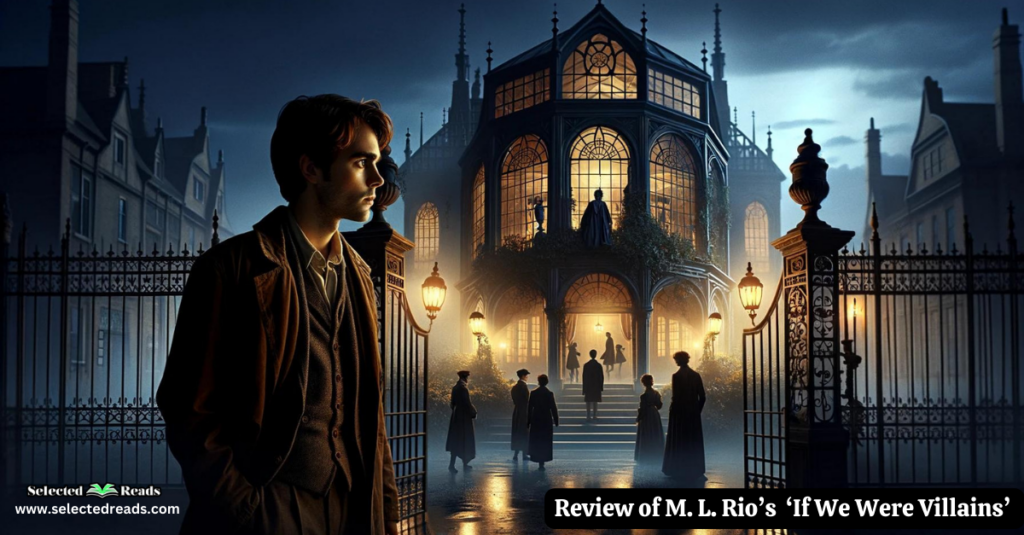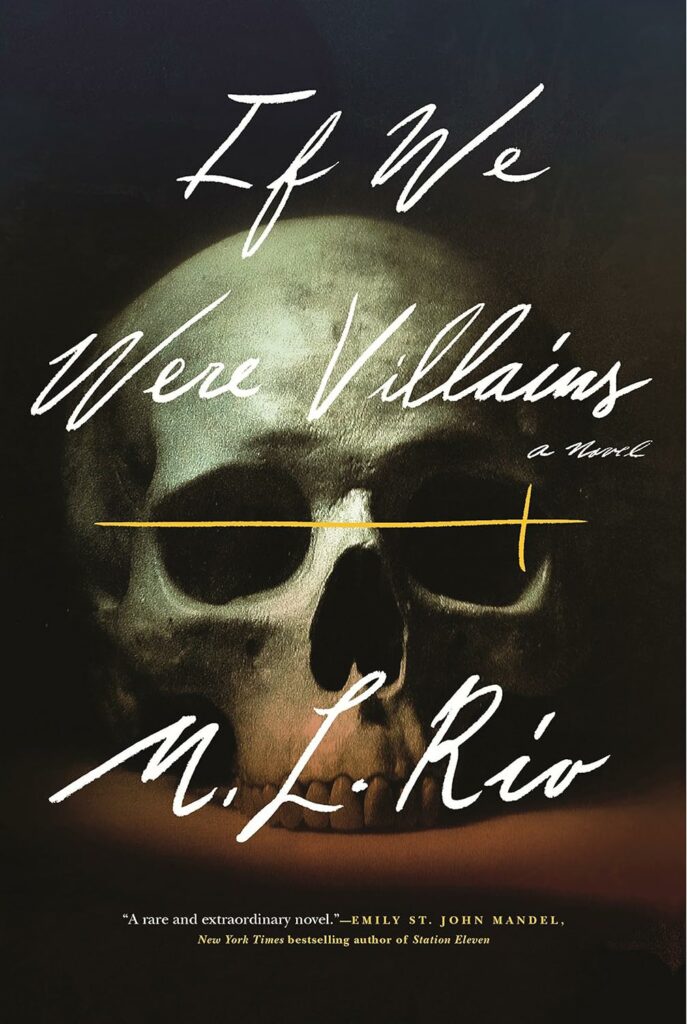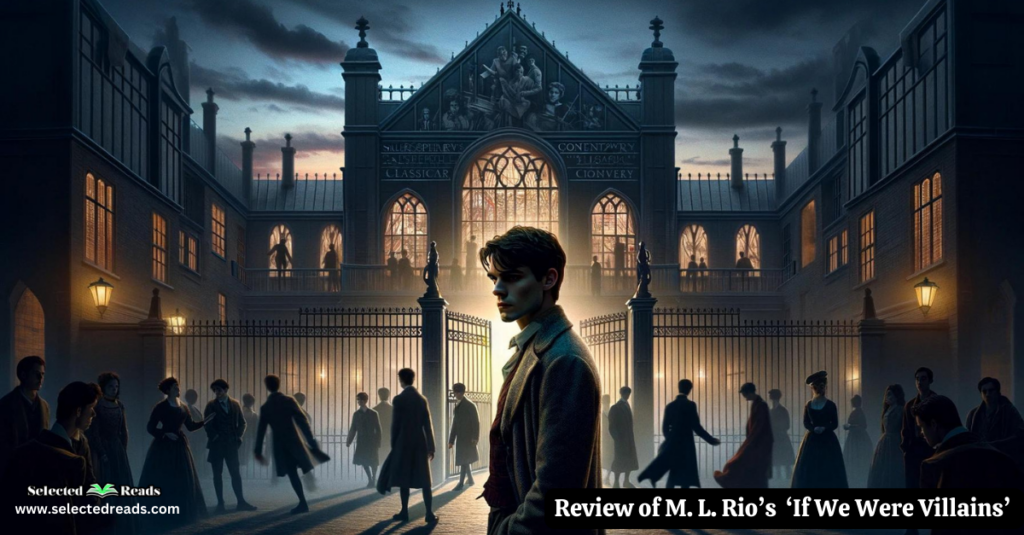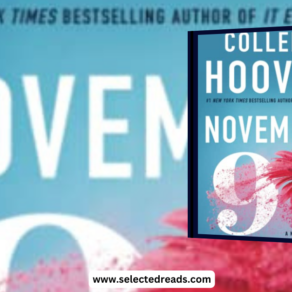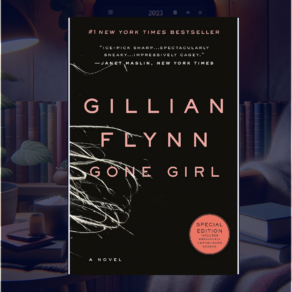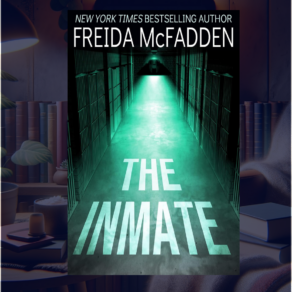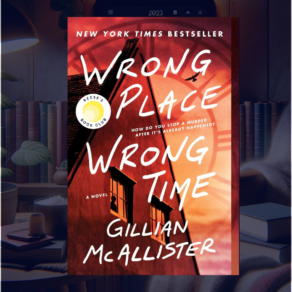“If We Were Villains” by M. L. Rio, a novel rich in narrative depth and emotional complexity, invites readers into a world where art imitates life, and life imitates art, blurring the lines between the two in a dance of ambition, love, and betrayal. In this post, we’ll explore an extended summary of the novel to set the stage for our discussion.
Following that, we’ll delve into the intricacies of the characters who play pivotal roles in this drama, each contributing to the unfolding mystery with their unique personalities and relationships. Finally, we’ll provide a set of book club questions designed to spark engaging and thought-provoking conversations about the themes, characters, and plot twists that make “If We Were Villains” a compelling read.
If We Were Villains Summary
“If We Were Villains,” authored by M. L. Rio and first hitting the shelves in 2017, is a novel that intricately weaves together elements of love, friendship, obsession, and the enduring power of Shakespeare’s works. This debut novel has been lauded for its depth and complexity, drawing comparisons to Donna Tartt’s “The Secret History” for its rich narrative and the way it captivates readers until the very last page.
The story unfolds with Oliver Marks being released from jail, greeted by the detective who incarcerated him a decade earlier. This encounter sets the stage for Oliver to unravel the tale of his past, a story steeped in the dramatic and competitive world of the Dellecher Classical Conservatory. Here, Oliver and his circle of fellow Shakespearean actors are not just students but embodiments of the very characters they play on stage, their lives mimicking the tragedies and comedies of the plays they perform.
The Conservatory is a crucible for these young actors, where the boundaries between performance and reality blur. Friendships are deep, rivalries are fierce, and the roles of hero, villain, tyrant, temptress, ingénue, and extras extend beyond the stage into their daily lives. Their fourth and final year brings these tensions to a head, transforming their once benign competition into something dark and ultimately tragic.
The event that catalyzes the novel’s climax occurs on opening night, when an act of real violence shatters the group’s carefully maintained illusion of theatrical make-believe. The consequences of this night unravel over the course of the novel, as Oliver’s recounting explores themes of art, identity, and the irrevocable impact of our actions.
Photo: Amazon
What makes “If We Were Villains” particularly compelling is its deep dive into the psyche of its characters, all of whom are complexly drawn and richly developed. Rio’s masterful use of Shakespearean themes and motifs not only pays homage to the Bard but also serves as a lens through which the characters’ motivations and the plot’s intricacies are magnified. The novel is a testament to the idea that life, much like a Shakespeare play, is filled with moral ambiguity, intense emotions, and moments of stark, irrevocable choice.
If We Were Villains Characters
In “If We Were Villains” by M. L. Rio, the characters are intricately drawn, each embodying the essence of the Shakespearean roles they perform, both onstage and off. The novel’s central characters, primarily seven young Shakespearean actors at the Dellecher Classical Conservatory, are as follows:
- Oliver Marks: The protagonist, whose release from jail opens the novel. Oliver’s narrative voice guides us through the events of a decade ago, revealing the intense dynamics among the group of friends and the incident that led to his incarceration.
- James Farrow: James is often cast in the roles of heroes or kings due to his commanding presence and natural leadership qualities. His relationship with the other characters, especially Oliver and Richard, plays a crucial role in the unfolding drama.
- Richard Stirling: Portrayed as the group’s natural antagonist, Richard often lands roles as villains or tyrants. His ambitious and sometimes abrasive nature stirs underlying tensions within the group, contributing significantly to the central conflict.
- Alexander “Alex” Vass: Alex is known for his versatility, adept at playing complex characters. His intelligence and depth add a layer of intrigue to the group’s interactions.
- Meredith Sinclair: The leading lady among the group, Meredith often plays the role of the temptress or ingénue. Her relationships with other characters, particularly the men, weave a complicated web of romance and rivalry.
- Filippa Kosta: Filippa is somewhat enigmatic, playing a variety of roles within the group’s productions. Her loyalty and insights into the dynamics of the group provide a stabilizing influence amid rising tensions.
- Wren Sullivan: Often cast in supporting roles, Wren’s quiet and observant nature makes her a confidante to others. Her perspective on the group’s dynamics offers a counterpoint to the more dominant personalities.
- Detective Colborne: Not a member of the acting troupe, but a significant character nonetheless. He is the detective who initially investigates the violence among the group and is waiting for Oliver upon his release from jail, eager to hear the truth of what happened ten years prior.
If We Were Villains Book Club Questions
Here are some thought-provoking questions that could lead to stimulating conversations:
- Character Dynamics: How do the relationships among the seven main characters evolve throughout the novel? Discuss how their real-life dynamics mirror the Shakespearean roles they play on stage.
- Theme of Art vs. Reality: “If We Were Villains” blurs the lines between performance and reality. How does this theme manifest in the characters’ lives and decisions? Can you find instances where characters struggle to distinguish between their roles and their true selves?
- Moral Ambiguity: The novel explores the concept of moral ambiguity, especially through the lens of Shakespearean tragedy. Discuss how the characters embody this theme. Are there clear heroes and villains in the story, or do the characters defy these labels?
- Influence of Shakespeare: Shakespeare’s work is central to the novel, not just as a backdrop for the story but also influencing the characters’ lives and the narrative’s structure. Discuss how specific plays or quotes resonate with the events of the novel and the fates of the characters.
- The Role of Setting: The secluded and almost timeless setting of Dellecher Classical Conservatory plays a significant role in the novel. How does the setting contribute to the atmosphere of the story? In what ways does it enhance the themes of isolation, competition, and artistic obsession?
- Oliver’s Narration: The story is told from Oliver’s perspective, years after the events have occurred. How does his retrospective narration impact your understanding of the events and characters? Do you trust his version of the story?
- The Ending: Without giving away spoilers, discuss your thoughts on the novel’s conclusion. Were you satisfied with the resolution? What do you think the future holds for Oliver and the other characters?
- Comparisons to “The Secret History”: “If We Were Villains” is often compared to Donna Tartt’s “The Secret History.” If you’ve read both, discuss the similarities and differences between the two novels in terms of theme, character development, and narrative structure.
- Impact of Art: The characters in the novel are profoundly affected by their immersion in Shakespeare’s works. Discuss how art, in various forms, influences the characters’ perceptions of themselves and their actions. Can art justify their decisions, or does it merely serve as a backdrop for their inherent traits and choices?
- Ethical Dilemmas: The novel presents several ethical dilemmas faced by the characters, especially concerning loyalty, truth, and justice. Choose one or more of these dilemmas and discuss how you would have reacted in the same situation.
Final thoughts
“If We Were Villains” by M. L. Rio offers a fascinating exploration of the complexities of human nature, art, and the inseparable bond between the two. Through our journey into the novel’s summary, character analysis, and the thoughtfully crafted book club questions, we’ve uncovered the layers that compose Rio’s debut masterpiece.



